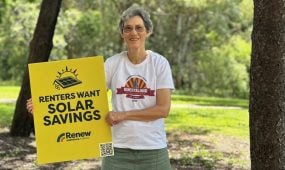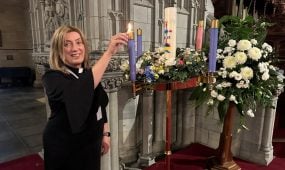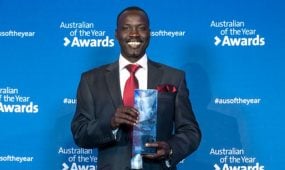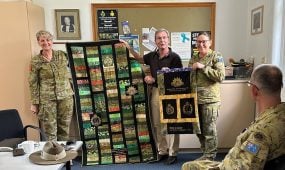Q&A with St Francis College formation student, father of six, former refugee, and disability support worker, Mamuor Kunpeter
Spotlight Q&A
Meet Mamuor Kunpeter and find out about his thoughts on ‘Being a kingdom people’, what Advent means to him, where he does his best thinking, what makes him nostalgic, and the most surprising thing that has happened to him recently
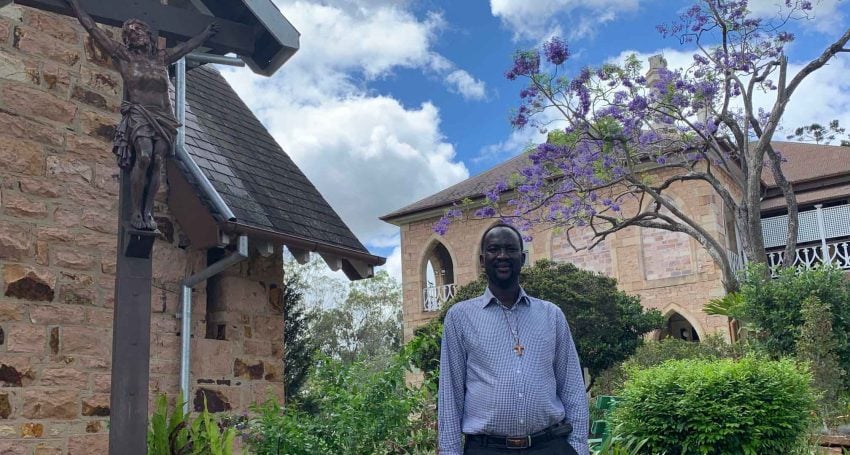
Mamuor Kunpeter is a first-year formation student at St Francis College. He lives at Redbank Plains and worships at The Parish of Goodna with his family – his wife Mary and their six children.
How long have you been involved in the Anglican Church?
I started off as an Episcopal Anglican in a refugee camp as a child in the early 1990s. When I came to Australia in 2003, I joined the Anglican Church here. I am currently a formation students, studying for the priesthood at St Francis College.
What are your current roles, including any voluntary roles, and what do your roles involve?
I am currently a formation student, studying for the priesthood at St Francis College. Before I became a formation student, I was commissioned as a liturgical assistant in the South Sudanese congregation at the Parish of Raceview. As part of my training, I am doing a placement at The Parish of Goodna, so I am working with teenagers and younger children on Sundays during services, as well as helping to teach the little children on Saturdays learn to read and write Dinka.
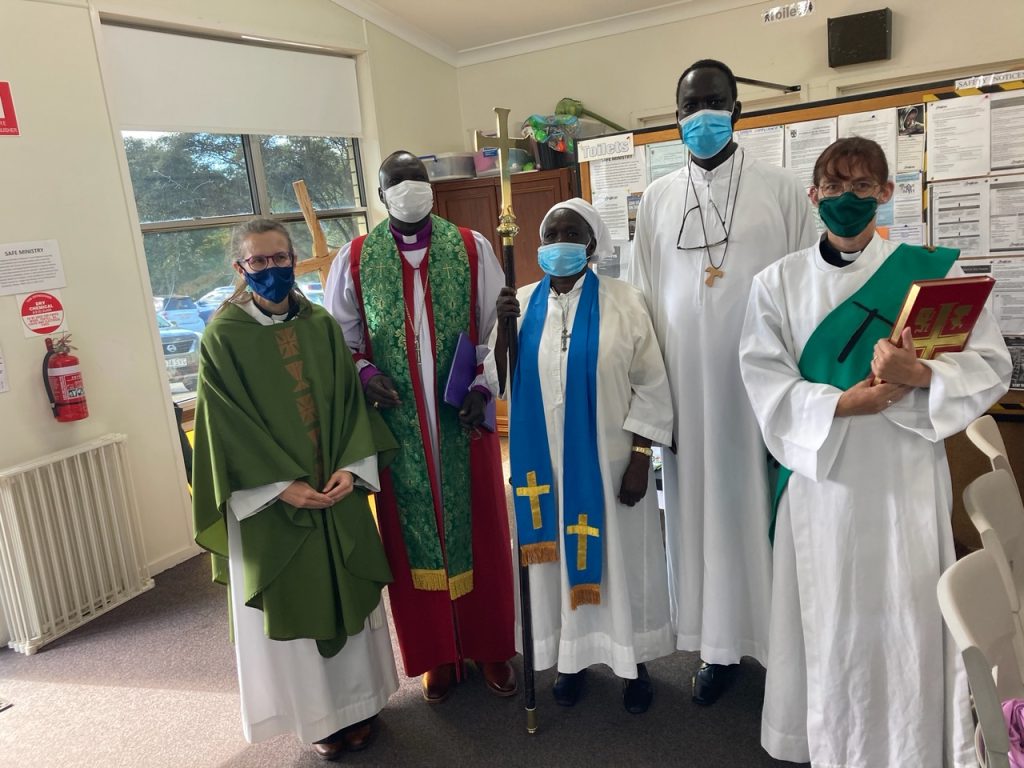
The Rev’d Bronwyn Pagram, Bishop Daniel Abot, Mary Reng, Mamuor Kunpeter and The Rev’d Dr Gemma Dashwood at The Parish of Goodna in 2021
What projects and activities are you currently working on?
In a few weeks’ time, I am going to start my clinical pastoral education, which is a 10-week course. I will be studying two days at St Francis College and doing three days placement at the Princess Alexandra Hospital in the chaplaincy unit.
What have been the highlights of your roles so far?
The highlights of my liturgical assistant role have been assisting the priest, The Rev’d Bronwyn Pagram, with the Eucharist and helping to lead the morning services, including with readings and intercessory prayers.
Advertisement
The highlights of my time at St Francis College have been developing my liturgical and preaching skills and building relationship with the wider Anglican faith community.
What have been the key challenges of your roles so far and how have you worked through these?
I have a young family with small children, aged from two to 15 years. Working part-time as a disability support worker and studying full-time is challenging as I would like to be able to spend more time with my family. I try and be organised so I can balance going to classes, working to provide for my family and spending time with Mary and my six kids. I help my children with their school work and take them to appointments. My daughter has down syndrome and a heart condition and so she needs a lot of attention and care. I am also helping to care for my cousin, James, who is in palliative care at present.
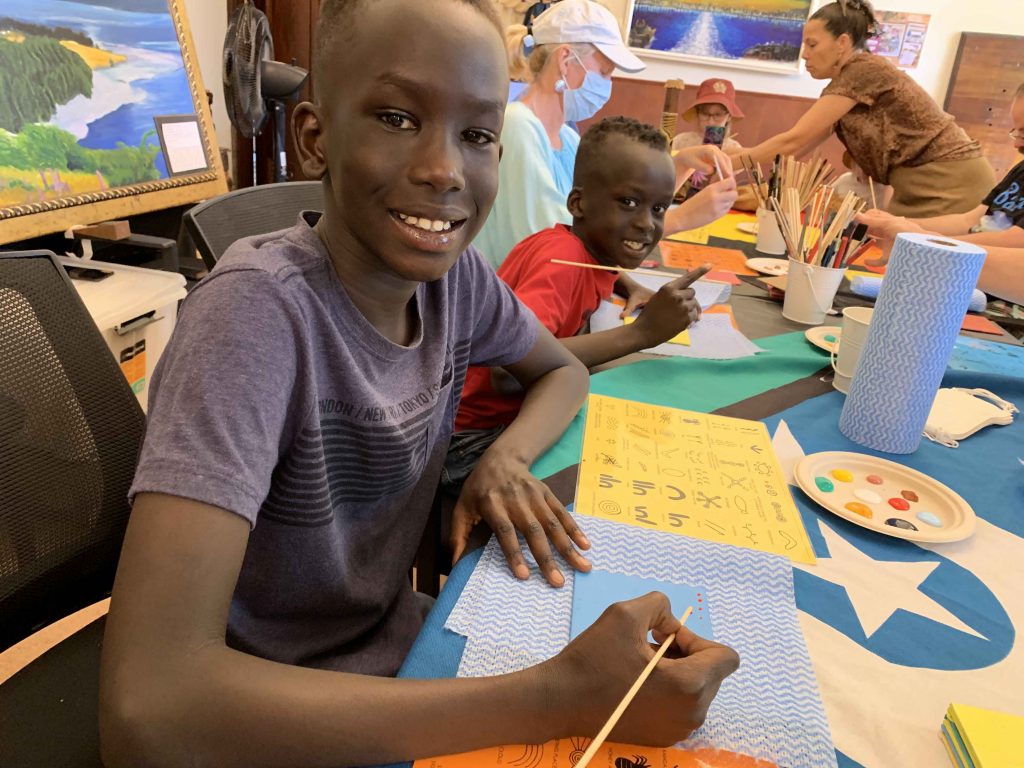
Mamuor’s clever boys, Malueth Malueth and Nai Malueth, enjoyed the First Nations dot painting workshop at On Earth Fest on 16 October 2021
What are your plans and goals for the next 12 months?
I only have two subjects to complete before I finish my Bachelor of Theology at St Francis College. That’s what I will be focusing on next year, together with my formation.
2022’s Diocesan theme is ‘Being Together: Embracing Joy’. What are some practical ways that we can celebrate the way differences help to make us whole and the importance of diversity in our unity?
Advertisement
In the Church people sometimes have different views, feelings and perspectives. We need to come together and love and welcome one another at Synod, in each other’s homes, over parish community meals, by celebrating Christmas together and enjoying fellowship tea and coffee after services.
Jesus said, “For where two or three are gathered in my name, I am there among them (Matthew 18.20).”
On the first of January every year, the five South Sudanese Anglican communities across our Diocese come together to worship and fellowship over a meal. The kids play together in the playground and the adults talk about the Bible and life. Sharing a meal together is the best way for different people to come together.
What advice do you have for people thinking about entering into ordained ministry?
You need to feel a call that this is what God wants you to do. When you realise that call, identify the area that God wants you to serve in and then serve. God can often call you to unexpected places.
What does Advent mean to you?
It is when we prepare our hearts for the birth of Christ by forgiving people who have hurt us and seeking forgiveness for our own sins.
The theme for the first week of Advent is ‘Being a kingdom people’ – what does this mean to you?
We are the people of God, so we are the kingdom of God. People of God need to have faith.
Can you tell us a little about your personal faith journey?
I came to know God through many struggles. When I sought safety as a refugee when I was a child, things became very hard. I had to leave my family with thousands of other Sudanese boys. I did not know when the next meal would be. I had to rely on God for everything.
How does your faith inspire you and shape your outlook, life choices and character?
Getting through the struggles of the refugee camps as a young boy without my parents gave me a lot of strength and faith in God. I want to be a priest so I can care for people. My faith is all about caring.
What is your favourite scripture and why?
My favourite part of the Bible is Philemon, which is just one chapter. Philemon has taught me about the beauty of forgiving and welcoming people, including people you regard as enemies.
What person of faith inspires you the most and why?
Other than Jesus, Bishop Daniel Abot inspires me the most. He is the honorary Bishop of Duk in South Sudan and he lives in Toowoomba with his family. He felt called to return to South Sudan to care for people, work with the United Nations and take care of orphans. He left his family in Toowoomba for a time to do this.

Jacob Agoot, Bishop Daniel Abot, Jacob Garang, Mamuor Kunpeter and Peter Jongkuch
What are the primary strengths of the Church and what is the best way to make the most of these for the benefit of our communities?
What I love about the Anglican Church is Anglican Comprehensiveness. Anglicanism is open and inclusive. It was great seeing Bishop Daniel Abot at Synod. The way our Diocese is so welcoming and compromise is our main strength.
What are the primary challenges currently encountered by the Church and what is the best way to overcome these for the benefit of our communities?
COVID-19 is the biggest challenge of the Church at the moment. The best way for us to overcome this together is by participating in worship, even if this means Zooming in, and staying faithful to prayer.
What is the best piece of advice you have ever received and who gave you this advice?
God is everywhere and so even if you can’t make it to church for several weeks, stay in relationship with God.
What do you do in your free time to recharge and relax?
I always try to find some free time between 8pm and 9pm to read my Bible and reflect. This has been part of my routine for a long time.
If you could have a billboard with any text on it, what would it say and why?
“God is good” because God is good.
What book have you given away most as a gift and why?
The Bible. I recently drove to a South Sudanese friend’s house and gave him a brand new Bible because he asked me for a copy.
Where do you do your best thinking?
I usually wake up at 4am in the morning to pray. I then go back to sleep thinking about my prayers and reflect on life. My wife wakes up and prays at 1am because we were once told by a Sudanese preacher that this is the best time to pray, but this is too early for me. I wake up at 4am to Mary’s snoring, so I don’t need an alarm. She thinks this is funny.
What makes you nostalgic and why?
One of my daughters likes to watch Sudanese dancing on YouTube. This makes me think of my childhood when I used to dance at Sunday School and in Youth Group.
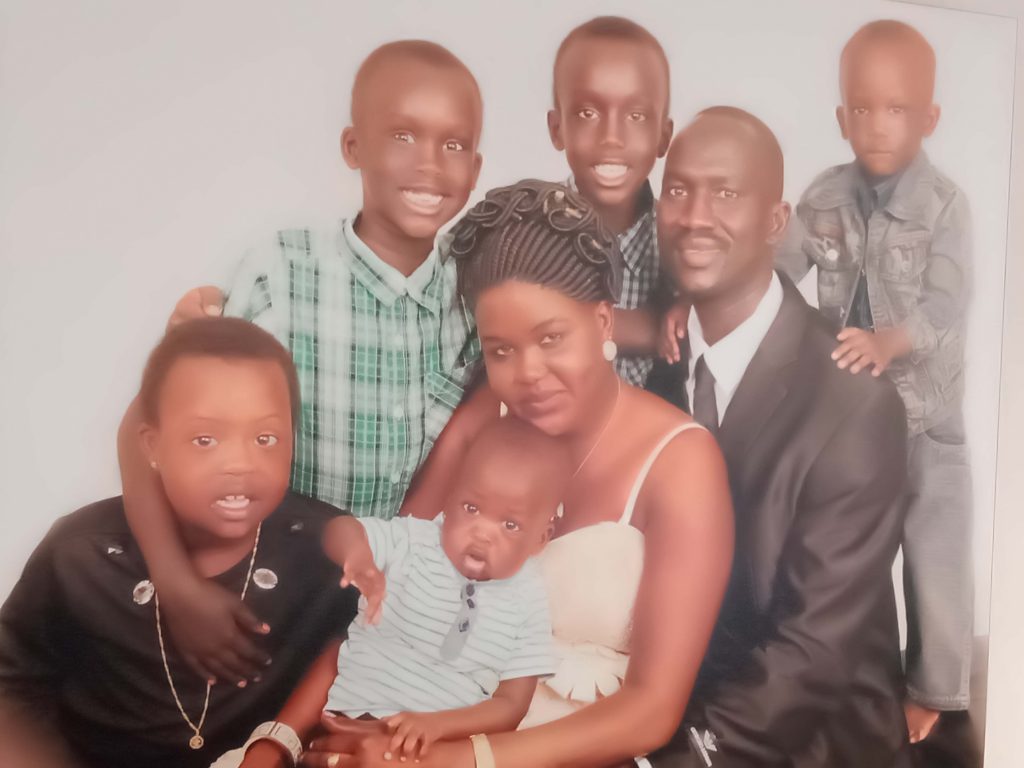
Mamuor and his family: Anna, Garang, Kun, Malueth, Mamuor, Mary and baby Lith
What’s your best childhood memory?
When I was still living with my parents in the village, people from different villages used to come with their cattle and we would live collectively together for around a month. The people who cared for the cattle were nomads and so they moved the cattle from one place to another for fresh grass for the cattle to eat. We also moved from place to place with our cattle looking for pasture. I liked making friends with kids from other village communities. Later in the refugee camps, after thousands of boys left Sudan for Ethiopia, I met up again with many of these friends and we resumed our relationships.
If you are having a bad day, what do you do to cheer yourself up?
Most of the time I go for a walk and then I come back and read my Bible and reflect on Bible stories.
What is the most surprising thing that has happened to you recently?
At the recent Valedictory Service at St Francis College, I was caught by surprise when I won an award.
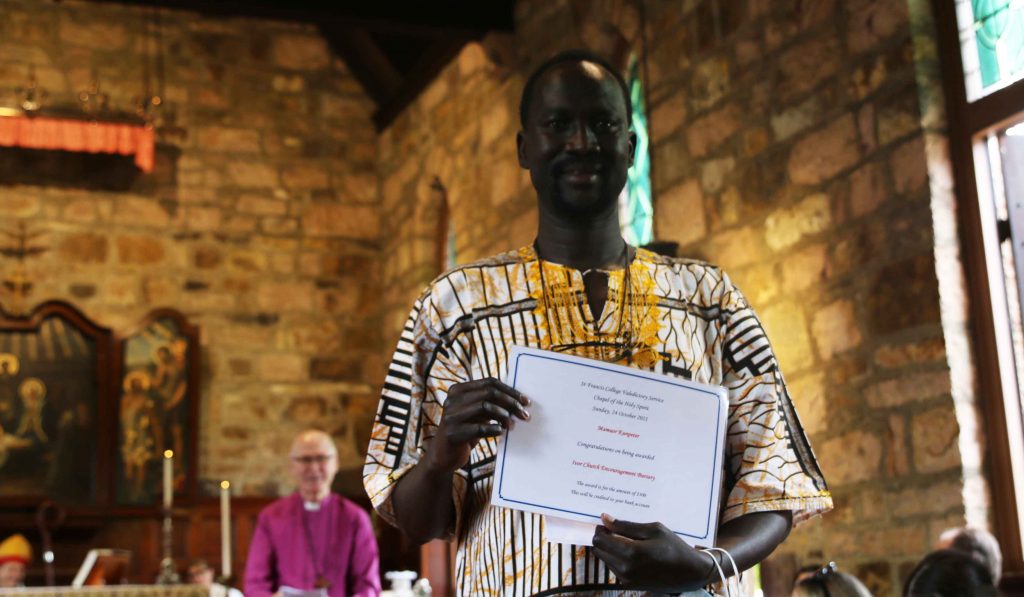
First-year formation student Mamuor Kunpeter was presented with The David Hughes Memorial Bursary at St Francis College during the Valedictory Service, on 24 October 2021

